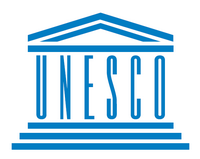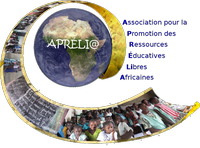Teachers
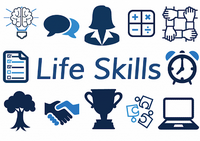 Source : TESSA
Source : TESSA
Section 1 Ways to explore who pupils are
Key Focus
Question: How can you help pupils explore who they are in ways that are sensitive and stimulating?
Learning outcomes
By the end of this section, you will have:
- developed your skills in organising the class in ways that will help pupils show respect for each other;
- developed your skills in asking questions to encourage thinking;
- used different ways to gather data to help pupils discuss who they are.
Introduction
We all learn best when we feel comfortable and safe. As a teacher, one of your key roles is to develop a supportive classroom environment where everyone is able to participate fully and feels they are respected and their ideas are listened to.
This section explores how to do this by looking at different ways of organising the class. You will help pupils learn how to treat each other with respect by:
- helping them understand their similarities and differences;
- asking them to share opinions and feelings;
- giving them tasks where they can ask each other questions and listen to the answers.
- Détails
- Écrit par : G. Puiségur
- Catégorie : Teachers
- Clics : 840
Lire la suite : Life skills : Personal development – how self-esteem impacts on learning
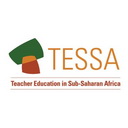 Source : TESSA
Source : TESSA
New technologies, often in educational contexts meaning information and communication technologies (ICTs), offer huge potential for classroom use. Although the availability of such technologies is limited in many African countries, that situation is changing rapidly. New forms of ICTs are appearing all the time. The experience of those with some knowledge of ICTs is not always a guide to the way in which new forms of ICTs can be most effectively used for learning.
This key resource, therefore, suggests how you, as a teacher, approach new technologies, rather than acting as a guide as to how they can be used. Here are ten points to help you establish a good approach to the potential of new technologies:
- Détails
- Écrit par : G. Puiségur
- Catégorie : Teachers
- Clics : 1085
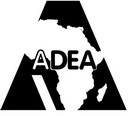 Source : ADEA
Source : ADEA
UNESCO Dakar in collaboration with ADEA and other partners across 48 countries in Sub-Saharan Africa have launched a survey for early childhood education (ECE) personnel during the COVID-19 pandemic. The survey aims to collect data on how early childhood teachers, teaching assistants, early childhood centres and school directors and principals are responding to the strains of the pandemic, understand the needs of the early childhood education personnel and learn how to support them.
- Détails
- Écrit par : G. Puiségur
- Catégorie : Teachers
- Clics : 901
 Step 1 - Brainstorming or getting ideas
Step 1 - Brainstorming or getting ideas
What could we investigate ? What could we measure or observe?
Step 2 : Planning
- Détails
- Écrit par : G. Puiségur
- Catégorie : Teachers
- Clics : 999
Lire la suite : Tools for planning and carrying out investigations in Science : TESSA key-resource
 Many teachers work in difficult contexts. They may have large classes. They may have few resources. The pupils in these contexts are not likely to have resources at home to compensate for limited school resources.
Many teachers work in difficult contexts. They may have large classes. They may have few resources. The pupils in these contexts are not likely to have resources at home to compensate for limited school resources.
A group of teachers working in such circumstances recently brainstormed suggestions about how to be resourceful despite such difficult conditions. They came up with many ideas and decided that the following seven were most useful:
- Détails
- Écrit par : G. Puiségur
- Catégorie : Teachers
- Clics : 1049
Lire la suite : Being a resourceful teacher in challenging circumstances : key-resource TESSA
 Each Key Resource provides practical advice about a particular classroom approach (e.g. group work) or skill (e.g. questioning). They are suitable for primary and secondary teachers, and for teacher educators designing learning experiences for pre-service or in-service teachers.
Each Key Resource provides practical advice about a particular classroom approach (e.g. group work) or skill (e.g. questioning). They are suitable for primary and secondary teachers, and for teacher educators designing learning experiences for pre-service or in-service teachers.
The approaches and skills described in the Key Resources are exemplified in activities and case studies, throughout the TESSA Subject Resources. As teachers and teacher educators try out these activities, they will develop expertise in a range of skills and classroom approaches. It is important to remember that there are no rules or ‘recipes’ for these approaches, rather a few guiding principles. How an individual teacher or teacher educator manages each approach will depend on the topic they are teaching, the context, the learners and their own ‘teaching personality’. Expertise will come through practice, and reflection on that practice. The TESSA Key Resources set out the guiding principles.
As with all the TESSA OER, the Key Resources can be copied, adapted and distributed as single resources, or as a complete set.
A unit containing all of the TESSA Key Resources can be downloaded in PDF and Word format from the Downloads box below. Alternatively individual Key Resources can be downloaded from the Downloads box in their corresponding Key Resource section.
- Détails
- Écrit par : G. Puiségur
- Catégorie : Teachers
- Clics : 1012
 Teachers play a critical role in student learning. Listening to their needs, protecting their safety and well-being, and helping them adapt their approaches to teaching and learning appear to be pivotal to help them succeed when they return to school after the COVID19 crisis. Here are 7 ways to help teachers succeed when schools reopen.
Teachers play a critical role in student learning. Listening to their needs, protecting their safety and well-being, and helping them adapt their approaches to teaching and learning appear to be pivotal to help them succeed when they return to school after the COVID19 crisis. Here are 7 ways to help teachers succeed when schools reopen.
The 63 million teachers affected by school closures during the COVID-19 crisis are playing a crucial role in ensuring that learning continues, often in difficult circumstances. Now the same teachers are on the front line of a new challenge: making sure that the reopening of schools goes smoothly.
Giving teachers the best chance of succeeding as they return to school means listening to their needs, protecting their safety and well-being, and helping them adapt their approaches to teaching and learning. These are the themes of new guidelines about school reopening by UNESCO, the International Labor Organization and the Teacher Task Force.
The article (Global Partnership for education)
- Détails
- Écrit par : G. Puiségur
- Catégorie : Teachers
- Clics : 1129
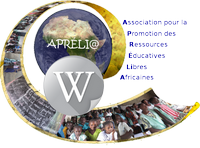 The Apréli@ educational e-twinning resources are available in English and in French on the dedicated website so that English speaking classes can participate in e-exchanges between countries in Africa and other regions of the world.
The Apréli@ educational e-twinning resources are available in English and in French on the dedicated website so that English speaking classes can participate in e-exchanges between countries in Africa and other regions of the world.
The availability of the Apreli@ resources in English and French also facilitates e-exchanges between French speaking and corresponding English speaking classes.
Through the Apréli@ e-twinning remote classes can carry out joint teaching and learning activities enabling them to share and collaborate in order to produce a digital travel diary to the partners’ environment. The Apréli@ e-twinning is an African initiative that implements digital uses matched to African educational needs. It develops innovative uses of African OER (Open Educational Resources) promoting learner-focused active learning and supports teachers in their implementation.
This site contains resources that classes participating in e-twinning Apréli@ can use and to which they can contribute.
Taking into account the pilot year evaluation results and the lessons learned, we have made minor changes to the files. The modified files were put online in early October 2012.
In addition, we have developed a set of resources for teacher educators. To access these, click 'Teacher Educator's Resources'
We hope that these resources meet the needs of teacher educators and teachers who involved their classes in the rich experience of the e-twinning activities.
We thank all those of you who are willing to share your appreciation of these resources. All your contributions will be very most valuable to help to improve the resources continuously and collectively.
We wish you all many rich and friendly exchanges, and great satisfactions both professionally and personally.
- Détails
- Écrit par : G. Puiségur
- Catégorie : Teachers
- Clics : 1080


